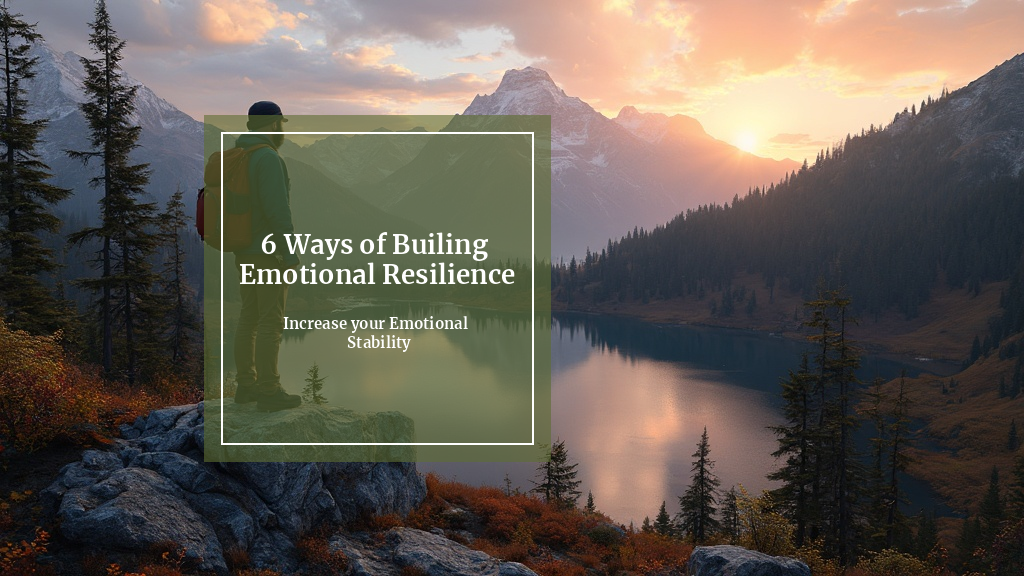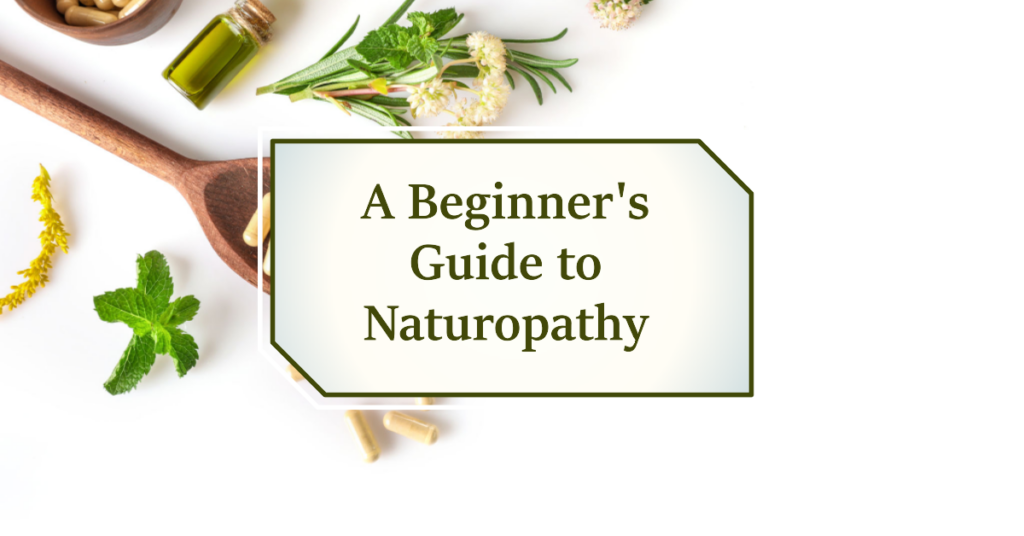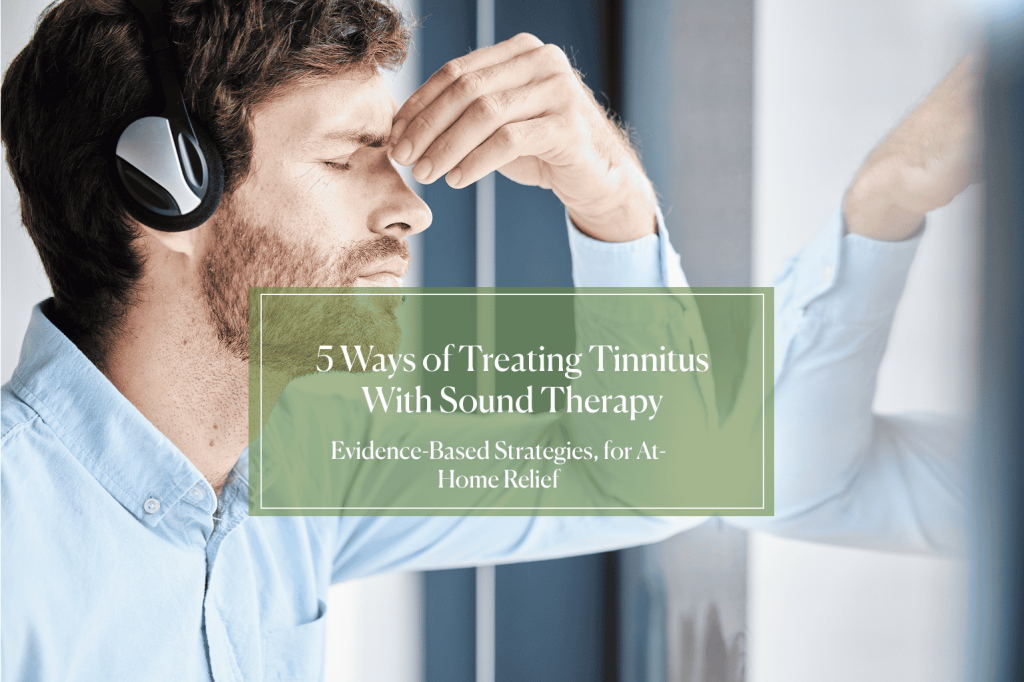6 Ways of Building Emotional Resilience

Table of Contents
Introduction: The Power of Emotional Resilience
In today’s fast-paced and often unpredictable world, emotional resilience has become an essential skill for navigating life’s challenges. Emotional resilience is the ability to adapt to stressful situations, bounce back from adversity, and maintain a positive outlook even in the face of difficulties. As we explore the six ways of building emotional resilience, it’s important to recognize that this skill can be developed and strengthened over time.
The American Psychological Association (APA) defines resilience as “the process and outcome of successfully adapting to difficult or challenging life experiences.” This definition underscores the importance of viewing resilience not just as an innate trait, but as a skill that can be cultivated through intentional practices and mindset shifts.
As we delve into these strategies, it’s worth noting that building emotional resilience is a holistic process that encompasses mental, emotional, and physical well-being. This approach aligns perfectly with the principles taught in the Holistic Health Practitioner course, which emphasizes the interconnectedness of various aspects of health and wellness.
Let’s explore the six powerful ways to build and strengthen your emotional resilience, drawing insights from experts, real-world examples, and evidence-based practices.
1. Cultivating Mindfulness

Mindfulness is a powerful tool for building emotional resilience. It involves being fully present in the moment, aware of your thoughts and feelings without judgment. By practicing mindfulness, you can develop a greater sense of self-awareness and emotional regulation, both crucial components of resilience.
Mindfulness Meditation Exercise
Time Required: 10-15 minutes
Materials Needed: A quiet space, comfortable seating
- Find a comfortable seated position in a quiet space.
- Close your eyes and take a few deep breaths, focusing on the sensation of air entering and leaving your body.
- Bring your attention to the present moment, noticing any thoughts or feelings that arise without judgment.
- If your mind wanders, gently bring your focus back to your breath.
- Continue this practice for 10-15 minutes, gradually increasing the duration as you become more comfortable.
Benefits: Regular mindfulness practice has been shown to reduce stress, improve emotional regulation, and enhance overall well-being. A study published in the Journal of Clinical Psychology found that mindfulness-based interventions can significantly reduce symptoms of anxiety and depression, contributing to greater emotional resilience.
Incorporating mindfulness into your daily routine can be as simple as taking a few mindful breaths before starting your workday or practicing mindful eating during meals. These small habits can accumulate to create a more resilient mindset over time.
For those interested in deepening their understanding of mindfulness and its role in holistic health, the 5 tips for a healthy lifestyle blog post offers additional insights on integrating mindfulness into a balanced lifestyle.
2. Practicing Self-Compassion

Self-compassion is a crucial aspect of emotional resilience. It involves treating yourself with the same kindness and understanding that you would offer to a good friend. By cultivating self-compassion, you can build a stronger foundation for resilience, allowing you to bounce back from setbacks and challenges with greater ease.
Self-Compassion Exercise
Time Required: 5-10 minutes
Materials Needed: Journal (optional)
- Identify a situation where you’re being hard on yourself.
- Acknowledge your feelings without judgment.
- Remind yourself that everyone makes mistakes and faces challenges.
- Speak to yourself as you would to a dear friend facing a similar situation.
- Write down or say aloud three self-compassionate statements.
Benefits: Research published in the Journal of Personality and Social Psychology suggests that individuals who practice self-compassion demonstrate greater emotional resilience, lower levels of anxiety and depression, and improved overall well-being.
Dr. Kristin Neff, a leading researcher in self-compassion, states, “With self-compassion, we give ourselves the same kindness and care we’d give to a good friend.” This approach allows us to acknowledge our struggles without harsh self-judgment, fostering a more resilient mindset.
Incorporating self-compassion into your daily life can be transformative. Whether it’s through positive self-talk, journaling, or simply taking a moment to acknowledge your efforts, these practices can significantly enhance your emotional resilience.
For those looking to explore natural ways to support their emotional well-being, the top 10 natural supplements for better health article provides valuable information on holistic approaches to mental and physical wellness.
3. Developing Positive Thinking Patterns

Positive thinking is a powerful tool for building emotional resilience. It involves consciously choosing to focus on the bright side of situations and maintaining an optimistic outlook, even in the face of challenges. By cultivating positive thinking patterns, you can enhance your ability to cope with stress and bounce back from adversity.
Positive Thinking Exercise: Gratitude Journal
Time Required: 5-10 minutes daily
Materials Needed: Journal or notebook, pen
- Set aside a few minutes each day, preferably in the morning or before bed.
- Write down three things you’re grateful for, no matter how small.
- Reflect on why you’re grateful for each item.
- Try to find new things to be grateful for each day.
- Review your entries periodically to reinforce positive thinking.
Benefits: A study published in the Journal of Personality and Social Psychology found that individuals who practiced gratitude regularly reported higher levels of positive emotions, life satisfaction, and resilience in the face of adversity.
Martin Seligman, a pioneer in positive psychology, emphasizes the importance of cultivating optimism: “Optimism is invaluable for the meaningful life. With a firm belief in a positive future, you can throw yourself into the service of that which is larger than you are.”
Developing positive thinking patterns doesn’t mean ignoring life’s difficulties. Instead, it’s about approaching challenges with a constructive mindset, focusing on solutions rather than dwelling on problems. This shift in perspective can significantly enhance your emotional resilience.
For those interested in exploring holistic approaches to mental well-being, the official certificate for holistic health practitioner training course offers comprehensive insights into integrating positive psychology principles into overall health practices.
5. Mastering Stress Management Techniques

Effective stress management is a crucial component of emotional resilience. By learning and practicing various stress reduction techniques, you can better cope with life’s challenges and maintain your emotional equilibrium. Mastering these skills allows you to respond to stressors more calmly and constructively.
Stress Management Exercise: Progressive Muscle Relaxation
Time Required: 15-20 minutes
Materials Needed: Comfortable seating or lying space
- Find a quiet, comfortable space where you won’t be disturbed.
- Starting with your toes, tense the muscles for 5 seconds, then relax for 10 seconds.
- Move up through your body, tensing and relaxing each muscle group (calves, thighs, abdomen, arms, hands, shoulders, neck, face).
- Focus on the sensation of relaxation as you release the tension in each area.
- Once you’ve completed the exercise, take a few deep breaths and slowly open your eyes.
Benefits: A study published in the Journal of Clinical Psychology found that regular practice of progressive muscle relaxation can significantly reduce symptoms of anxiety and stress, contributing to improved emotional resilience and overall well-being.
Dr. Herbert Benson, founder of the Mind/Body Medical Institute at Massachusetts General Hospital, emphasizes the importance of the “relaxation response” in managing stress: “The relaxation response is a physical state of deep rest that changes the physical and emotional responses to stress… and the opposite of the fight or flight response.”
Incorporating various stress management techniques into your daily routine can significantly enhance your emotional resilience. This might include practices like deep breathing exercises, meditation, physical exercise, or engaging in hobbies that help you relax and recharge.
| Stress Management Technique | Benefits | Time Commitment |
|---|---|---|
| Deep Breathing | Reduces anxiety, lowers blood pressure | 5-10 minutes daily |
| Meditation | Improves focus, reduces stress | 10-20 minutes daily |
| Physical Exercise | Boosts mood, reduces stress hormones | 30 minutes, 3-5 times a week |
| Journaling | Promotes self-reflection, reduces anxiety | 15-20 minutes daily |
For those interested in exploring holistic approaches to stress management, the PositivePsychology.com article on emotional resilience offers additional insights and techniques for building resilience through stress managementand positive psychology practices.
6. Prioritizing Self-Care

Self-care is an essential component of emotional resilience. It involves taking deliberate actions to maintain and improve your physical, mental, and emotional well-being. By prioritizing self-care, you can build a strong foundation for resilience, enabling you to better handle life’s challenges and maintain a positive outlook.
Self-Care Exercise: Creating a Personal Self-Care Plan
Time Required: 30-60 minutes (initial planning), ongoing implementation
Materials Needed: Journal or notebook, pen, calendar
- Reflect on activities that bring you joy, relaxation, and fulfillment.
- Identify areas of your life that need more attention (e.g., physical health, relationships, personal growth).
- Create a list of self-care activities for each area of your life.
- Schedule these activities into your calendar, treating them as important appointments.
- Review and adjust your self-care plan regularly to ensure it meets your changing needs.
Benefits: Research published in the International Journal of Environmental Research and Public Health indicates that individuals who engage in regular self-care practices report higher levels of emotional resilience, reduced stress, and improved overall well-being.
Dr. Kristin Neff, a leading researcher in self-compassion, emphasizes the importance of self-care: “Self-care is not selfish. You cannot serve from an empty vessel.” This perspective highlights the crucial role of self-care in maintaining emotional resilience and the ability to support others.
| Self-Care Domain | Activities | Frequency |
|---|---|---|
| Physical | Exercise, healthy eating, adequate sleep | Daily |
| Emotional | Journaling, therapy, mindfulness practices | Weekly |
| Social | Connecting with friends, family time, community involvement | Weekly to monthly |
| Spiritual | Meditation, nature walks, religious/spiritual practices | Daily to weekly |
| Intellectual | Reading, learning new skills, creative hobbies | Weekly |
Incorporating self-care into your daily routine doesn’t have to be time-consuming or expensive. Simple activities like taking a short walk, practicing deep breathing, or enjoying a cup of tea mindfully can significantly contribute to your emotional resilience.
For those looking to deepen their understanding of holistic self-care practices, the holistic health practitioner online training course offers comprehensive insights into integrating various aspects of well-being for optimal health and resilience.
Conclusion: Embracing Emotional Resilience for a Fulfilling Life
Building emotional resilience is a journey that requires consistent effort and practice. By incorporating these six strategies – cultivating mindfulness, practicing self-compassion, developing positive thinking patterns, building strong social connections, mastering stress management techniques, and prioritizing self-care – you can significantly enhance your ability to navigate life’s challenges with grace and strength.
Remember that emotional resilience is not about avoiding difficulties or never experiencing negative emotions. Instead, it’s about developing the skills and mindset to bounce back from adversity, learn from experiences, and maintain a sense of hope and optimism even in the face of challenges.
As you continue on your journey towards greater emotional resilience, consider exploring additional resources and educational opportunities to deepen your understanding and practice. The holistic approach to emotional resilience aligns well with the principles of overall well-being and personal growth.
Explore More
- 5 Tips for a Healthy Lifestyle
- How to Make the Most of a Holistic Online Course
- Top 10 Natural Supplements for Better Health
By committing to your emotional resilience journey, you’re not only investing in your own well-being but also contributing to a more resilient and compassionate world. Embrace these practices, be patient with yourself, and celebrate your progress along the way. Remember, building emotional resilience is a lifelong journey, and every step you take brings you closer to a more balanced, fulfilling life.









Responses